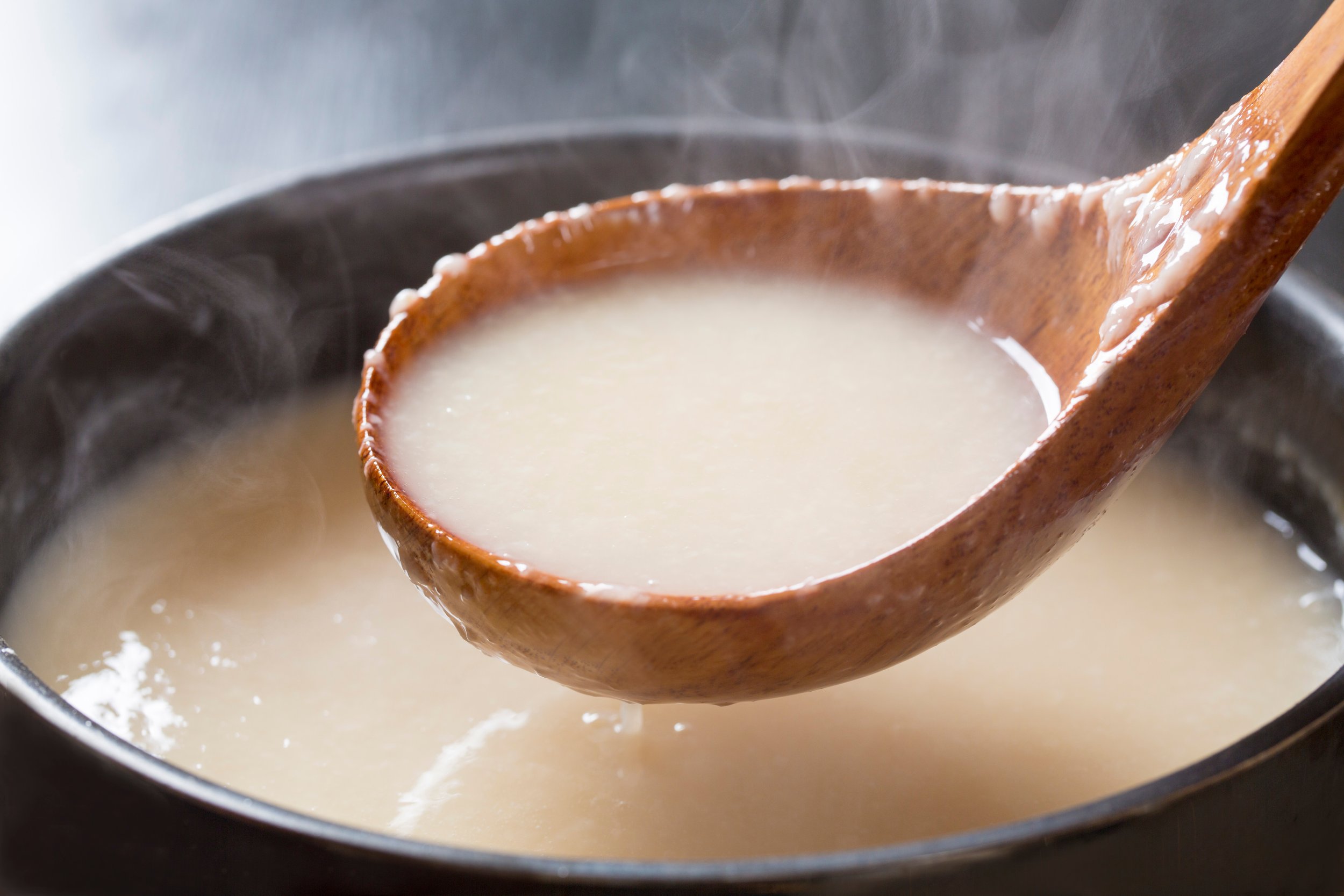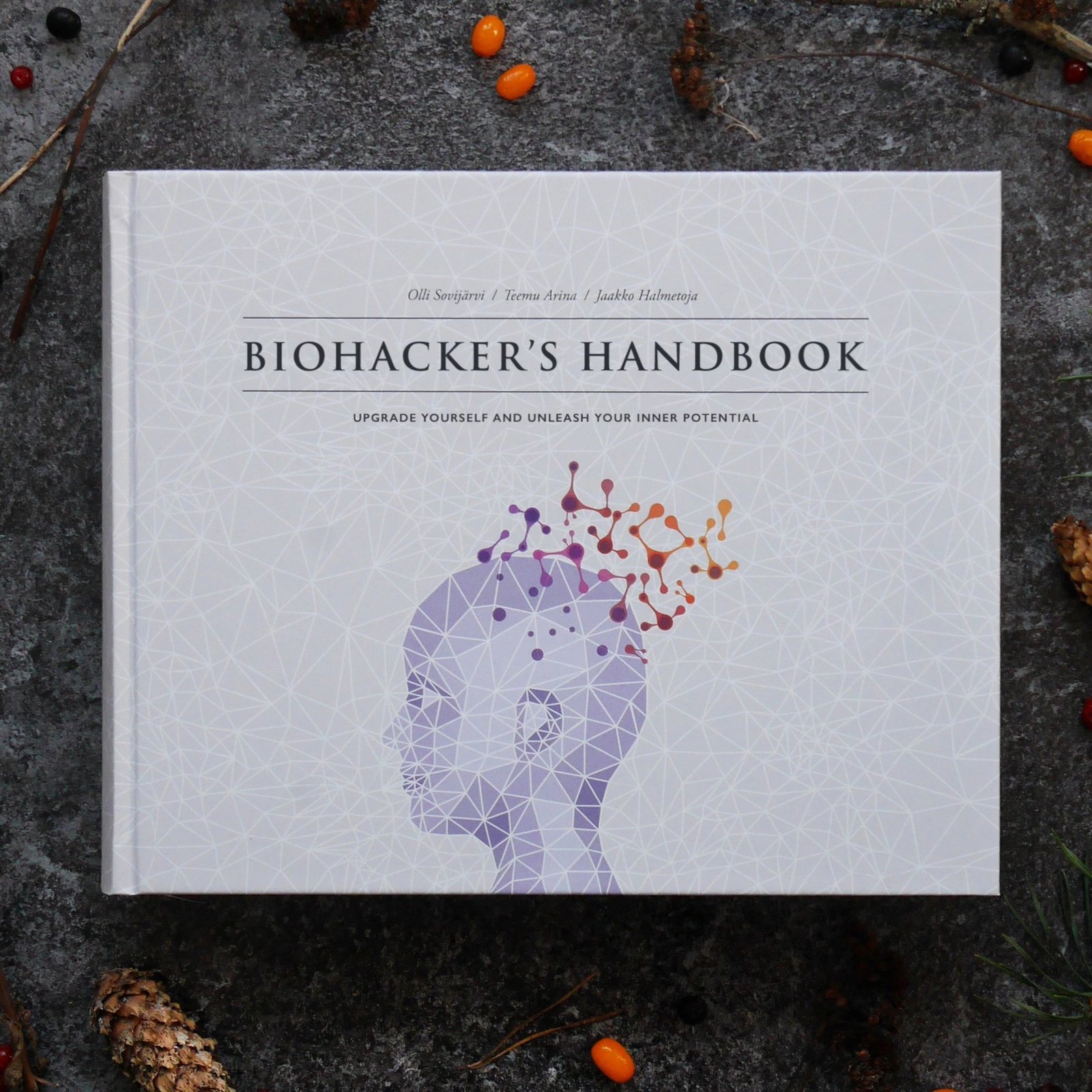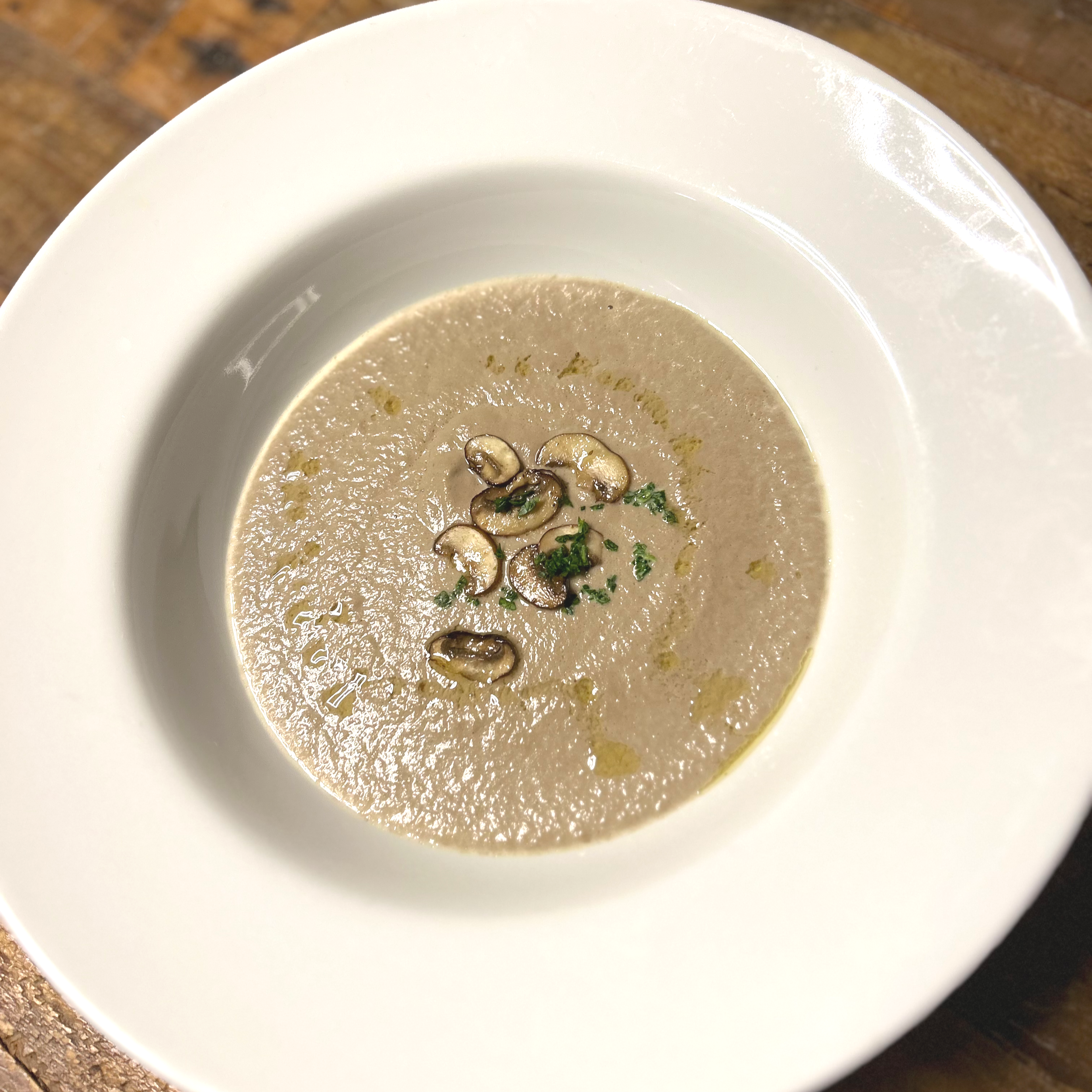Japanese Drinkable IV “Amazake”
Amazake
Japanese people have enjoyed amazake for more than a thousand years. Amazake is a traditional Japanese fermented beverage that has recently gained attention for its beauty and health benefits.
Anyone sick knows the importance of fluids when you’re not feeling well. Drinking lots of liquids helps your body flush toxins and get the nutrients it needs to heal. Now, a new drinkable IV called Amazake may help even more. Japanese people have enjoyed amazake for more than a thousand years. Amazake is a traditional Japanese fermented beverage that has recently gained attention for its beauty and health benefits. It is not only high in nutrients such as vitamin B, essential amino acids, and naturally occurring glucose but also boosts immunity, improves gut health, and has anti-aging effects. Amazake is made from fermented rice and is rich in antioxidants and probiotics. Some researches show that Amazake has anti-inflammatory properties and can help boost your immune system. It’s been a traditional remedy for colds, flu, and other illnesses for centuries.
Relationship between sake brewing and the amazake production process. Ref: https://www.ncbi.nlm.nih.gov/pmc/articles/PMC8227387/
What is amazake?
Amazake is a sweet drink from Aspergillus oryzae and related koji molds in Japan. There are two types of drinks called amazake, one made from Koji (koji amazake) and the other made from sake lees, a by-product of sake (sakekasu amazake). The sweetness of koji amazake is from glucose, derived from starch broken down by Aspergillus oryzae amylase. The other, sakekasu amazake, depends on added sugar.
Sake brewing begins by polishing brown rice into white rice. The polished rice is steamed, and the spores of Aspergillus oryzae (tane-koji) are then added to the cooked rice. Rice-koji is produced based on the growth of Aspergillus oryzae from the surface layer to the rice (rice-koji-making process). Sake yeast is cultivated using cooked rice and rice-koji (Shubo-making process). In addition, cooked rice, rice-koji, and Shubo are combined (moromi) for alcoholic fermentation. After alcoholic fermentation, the mash is pressed and separated into liquid and solid sake lees.
What Koji essentially does is that it breaks down long chain molecules into smaller molecules. For example, starch is made from small molecules of glucose. Koji would break these chains up and make glucose out of starch. The same happens with proteins, so the Koji breaks down all the protein molecules into amino acids. Because these long-chain molecules are broken up, it’s easier for our bodies to digest. When drinking amazake, you don’t find starch sweet but find glucose sweet. Because the starch in amazake is broken down to glucose, the drink tastes sweet, even though no sugar has been added. So it’s like naturally sweetened.
The main components of amazake are glucose and sucrose, but they also contain more than 300 other ingredients. Koji amazake contains oligosaccharides, which serve as food for bifidobacteria. Bifidobacterium bifidum promotes defecation and prevents accumulated stool from rotting and making the stomach tight. In other words, it helps to keep the intestines healthy and functioning correctly. Amazake also contains glucosylceramide, which increases the number of good bacteria in the gut.
Sakekasu amazake has a resistant protein and α-ethyl glucoside, characteristic ingredients of each amazake. These traditional Japanese beverages are rich sources of probiotics and beneficial microbes that help maintain a healthy balance of microorganisms in the gut. Probiotics have been shown to promote gastrointestinal health and prevent digestive problems such as diarrhea, constipation, and irritable bowel syndrome.
What’s in amazake?
The main active ingredients in amazake are kojic acid, vitamin B, ferulic acid, and digestive enzymes. Kojic acid is known to suppress the formation of melanin, which can help to brighten the skin. Vitamin B2 is essential for metabolizing fat and maintaining healthy skin, hair, and nails.
Biotin, a type of vitamin B group, helps the formation of collagen, which is indispensable for beautiful skin and hair. It also promotes blood circulation to the scalp. Vitamin B6 is a water-soluble vitamin that calms and maintains a healthy nervous system. It is excellent in relieving depressive symptoms and PMS. Furthermore, it supports the decomposition and absorption of proteins and keeps healthy skin, mucous membranes, teeth, and hair. Pantothenic acid, Vitamin B5, helps battle stress by assisting the parasympathetic nerve. It’s also great for weight loss, as pantothenic acid helps break down fats and carbohydrates. Ferulic acid is a natural antioxidant that helps to protect the body from harmful substances and promote cell metabolism. Digestive enzymes break down carbohydrates and proteins and convert them into energy. These enzymes reduce the excessive components from accumulating in the body. Cysteine is an amino acid that helps nourish clear, bright skin, healthy nails, and hair. It is also a key component of keratin, which strengthens hair and prevents hair loss. Amazake is an effective treatment for various types of dermatitis, including eczema and psoriasis. Amazake is also a rich source of GABA. GABA is an amino acid that promotes the function of parasympathetic nerves, helps reduce stress, and enhances relaxation. This potent beverage not only chills you out but reduces high blood pressure and helps normalize the function of the liver and kidney that breaks down alcohol and discharges sodium ions.
What research says
What are the health benefits of amazake? There have been a lot of scientific studies done on koji and amazake. One recent study published in the Journal of Fungi found that amazake can improve bowel movements in healthy adults. The study found that participants who consumed amazake had more regular bowel movements and were less likely to experience constipation than those who did not. The researchers believe that the Aspergillus oryzae cells in amazake may play a role in these benefits.
Amazake also has been traditionally used as a skin tonic in Japan, and recent studies have shown that it can help to improve skin barrier function. In a randomized, double-blind, placebo-controlled study, 32 healthy female subjects ingested Amazake or placebo for 8 weeks. The amazake group showed significantly improved skin barrier function compared to the placebo group. These results suggest that amazake may effectively treat skin conditions like eczema and psoriasis.
Since amazake is rich in vitamins and amino acids, it has been shown to effectively reduce fatigue and improve the quality of life in patients with liver cirrhosis. In this pilot study, researchers examined the effect of amazake on subjective symptoms and quality of life in patients with liver cirrhosis. Their results showed that amazake effectively reduced fatigue and improved the quality of life in these patients. These findings suggest that amazake could be a valuable adjunctive therapy for patients with liver cirrhosis. Moreover, for athletes and active individuals, the effects of amazake intake on physical fatigue and subjective symptoms during exercise training in sports athletes have been investigated. Amazake intake improved quality of life based on all researched terms, such as fatigue. The authors concluded that B vitamins and amino acids, especially branched-chain amino acids (BCAAs), might be active substances contained in amazake. Amazake has also been reported to have remarkable physical fatigue recovery effects on pain in male and female long-distance runners. These findings suggest that amazake intake may benefit sports athletes in reducing physical fatigue and improving quality of life.
The potential of koji in amazake has also been shown to have an anti-obesity effect by mechanisms other than food intake regulation. Koji may also involve feed efficiency but may differ depending on the type of rice koji. White and red koji may improve glucose tolerance by activating glucose uptake through the increase of GLUT4 protein expression in the muscle. As a result, Rice koji should be considered a readily accessible functional food that may be effective for preventing or treating metabolic syndrome.
Would you drink guilty-free “sweet sake” to your lifestyle?
Amazake, a sweet drink made from rice koji or sakekasu, has been enjoyed by Japanese people since ancient times for its delicious taste and many functional benefits. Although the ingredients and manufacturing methods are different, both types of amazake have similar effects and contribute to human health. Amazake can be enjoyed all year round. We, Japanese, drink amazake in the summer to gain energy, but also in the winter, we drink it hot to keep ourselves warm. In the new year, some shrines serve you warm amazake. There’s nothing more comforting than drinking a warm amazake on a chilly day queueing to pray for good fortune for the year. I hope that amazake will be consumed in many countries, including Japan, and help to improve people’s health worldwide.
References:
Kurahashi A. Ingredients, Functionality, and Safety of the Japanese Traditional Sweet Drink Amazake. J Fungi (Basel). 2021 Jun 10;7(6):469. doi: 10.3390/jof7060469. PMID: 34200668; PMCID: PMC8227387.
Kurahashi A, Enomoto T, Oguro Y, Kojima-Nakamura A, Kodaira K, Watanabe K, Ozaki N, Goto H, Hirayama M. Intake of Koji Amazake Improves Defecation Frequency in Healthy Adults. J Fungi (Basel). 2021 Sep 21;7(9):782. doi: 10.3390/jof7090782. PMID: 34575820; PMCID: PMC8470246.
Ueda, M. & Kitagawa, M. & Koike, S. & Yamamoto, T. & Kondo, S.. (2017). Effect of intake of amazake on skin barrier functions in healthy adult women subjects -A randomized, double-blind, placebo-controlled study. Japanese Pharmacology and Therapeutics. 45. 1811-1820.
Nagao Y., Sata M. Effect of a late evening snack of Amazake in patients with liver cirrhosis: A pilot study. J. Nutr. Food Sci. 2013;3:1000223. doi: 10.4172/2155-9600.1000223.
Kashimura O., Uehara Y., Shimazaki A. Effects of amazake using rice koji intake in sports athletes on physical fatigue and subjective symptoms during exercise training. Jpn. J. Sport Health Sci. 2019;6:37–48.
Yoshizaki Y, Kawasaki C, Cheng KC, Ushikai M, Amitani H, Asakawa A, Okutsu K, Sameshima Y, Takamine K, Inui A. Rice koji reduced body weight gain, fat accumulation, and blood glucose level in high-fat diet-induced obese mice. PeerJ. 2014 Aug 26;2:e540. doi: 10.7717/peerj.540. PMID: 25237599; PMCID: PMC4157231.
NEWS
OPTIMIZED LIFE
TATEKITCHEN
BLOG















